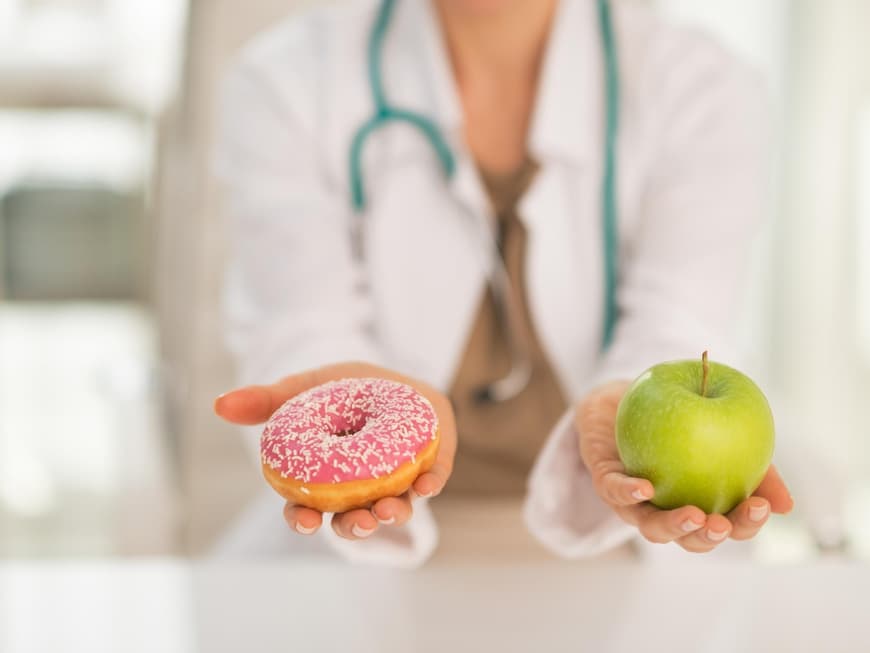
High blood pressure: counteracting it with nutrition
Can patients with high blood pressure drink alcohol? Better only in moderation. If possible, it should not be more than one glass of beer or wine: Alcohol can be responsible for increasing our blood pressure. High blood pressure and coffee are also not particularly compatible - aromatic alternatives are caffeine-free coffee or tea.
High blood pressure patients can enjoy their meals: fruit and vegetables, preferably with every meal and as a snack between meals, provide the body with important nutrients. Low-fat dairy products are also really good - milk, yoghurt, kefir, cheese, low-fat quark and the like contain valuable protein and are light and easily digestible. Wholemeal products such as bread, pasta and rice are full of fiber and thus ensure regular digestion. Fish such as salmon and tuna, which are high in omega-3 fatty acids and can help to lower blood pressure, should also be included in your diet.
Meat should not be eaten more than two or three times a week. White and lean meat such as poultry is suitable as part of the diet for high blood pressure - cured and smoked sausage and smoked or salted fish should be avoided.
High blood pressure and diet: beware of salt
Numerous studies have found a link between high blood pressure and salt. Salt should therefore be used with caution if you have high blood pressure! Instead, spices or herbs can add spice. Onions, garlic or grated horseradish taste even spicier. Ready-made spice mixtures almost always contain a lot of salt and are therefore not suitable.
In addition to diet, regular exercise is also important for the well-being of people with high blood pressure. For people with high blood pressure, being overweight also carries risks, especially fat deposits on the stomach: these release certain messenger substances that can lead to a deterioration in blood pressure. Before engaging in intensive sporting activity, high blood pressure patients should first have their exercise tolerance tested.






